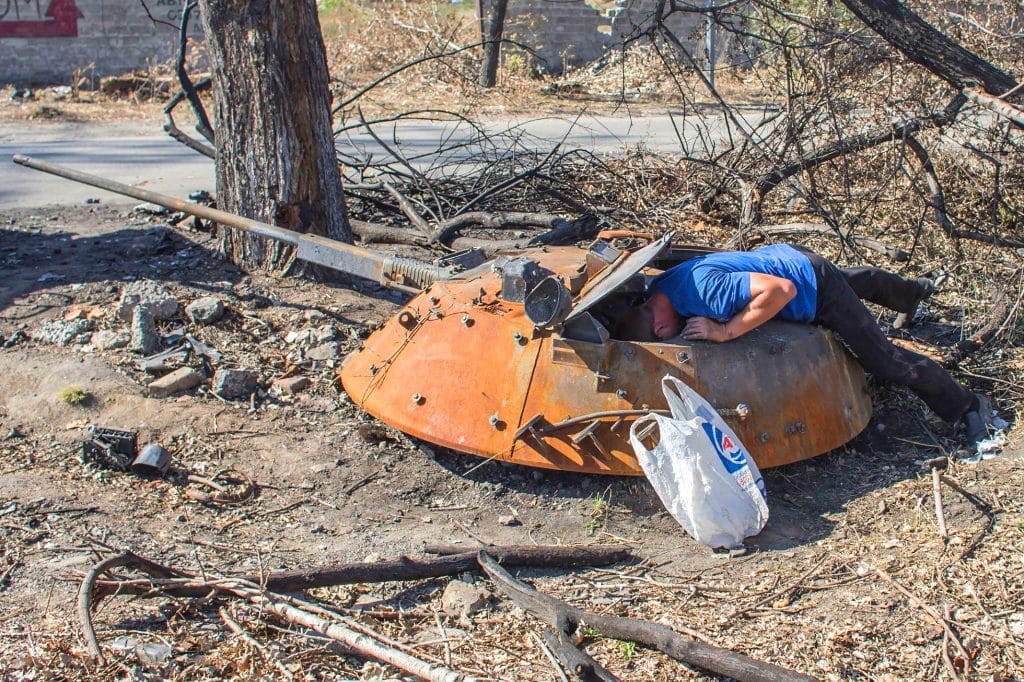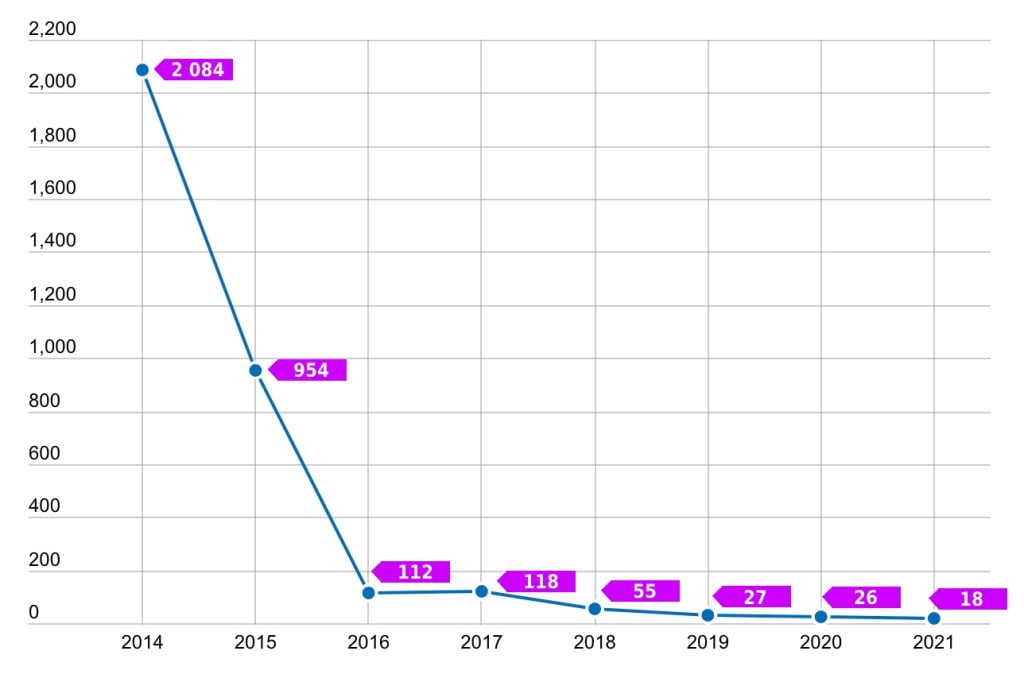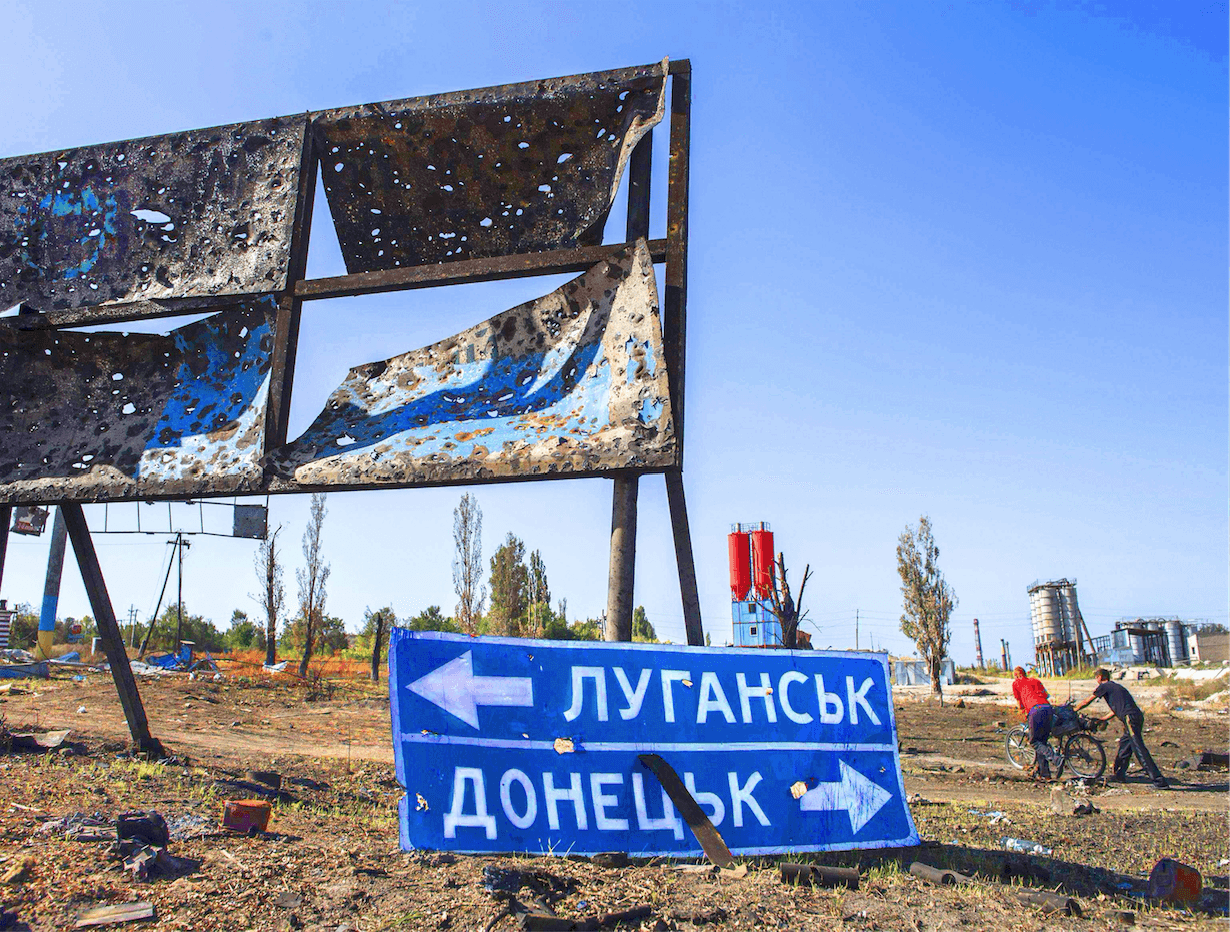The Kremlin has repeatedly talked about the genocide of Russians in Donbass by Kyiv, and Russian President Vladimir Putin used this as a basis for sending troops into Ukraine on February 24, 2022. We found out whether what is happening in Donbass falls under the definition of genocide.
In his treatment On the start of the military operation in Donbass, Vladimir Putin used the term “genocide” twice. First, he noted that “it was necessary to immediately stop this nightmare - genocide against millions of people living there who rely only on Russia.” Then said, that the purpose of the “special military operation” is to protect people who “have been subjected to abuse and genocide by the Kyiv regime for eight years.”
Back in 2015, when gas supplies to Donbass were interrupted, Putin said, which “smacks of genocide.” In 2019 he predicted massacre of ethnic Russians on the scale of the Srebrenica massacre when Bosnian Serbs killed about 8,000 men and boys from Muslim families. In 2021, Putin will once again statedthat the conflict in Donbass “looks like genocide.” And Foreign Ministry Speaker Maria Zakharova continued this topic in 2022, calling The West is complicit in genocide.
Brief summary of the analysis
- The armed conflict in Donbass does not meet the strict legal definition of genocide, established by the UN Convention in 1948.
- International organizations, which include Russian observers, did not find any evidence of deliberate extermination of civilians Donbass.
- Over the past six years, the number There were relatively few civilian casualties (an average of 59 per year in 2016–2021 versus 954 and 2,084 in 2015 and 2014), which does not correspond to Russian claims of massacres or predictions of “mass slaughter.”
- The Russian government relied on false or unverified information to prove genocide.
The Russian President himself called for careful use of the term “genocide” when speaking about Donbass. “Here you need to act very carefully so as not to devalue these concepts,” spoke Putin in December 2021.
1. Definition of genocide
1948 UN Genocide Convention defines the term "genocide" as "acts committed with the intent to destroy (in whole or in part) a national, ethnic, racial or religious group as such." Judicial interpretation of the term "genocide" implies exclusively the deliberate physical destruction of a group, and not an attack on its existence in the form of persecution of cultural traditions or “ethnic cleansing”.
Politicians and historians admitthat it is extremely difficult to present irrefutable evidence of genocide, and therefore to bring charges of genocide. The individual guilt of the accused must be proven. Moreover, it is necessary to prove intent to commit genocide - for example, the fact of calling for the destruction of a minority.
2. Causes of death of civilians in Donbass
It would be difficult for Ukrainian authorities to hide a large-scale program of extermination of the Russian population: since 2014, the conflict zone has been under close scrutiny. In addition to journalists and ordinary citizens with accounts on social networks, in the Donetsk and Lugansk regions work about 600 observers of the OSCE Special Monitoring Mission from more than 40 countries, including Russia. Over eight years of work, OSCE representatives not found not a single evidence of systematic killings of civilians in the Donbass.
Of the 3,393 deaths, 58% were caused by mines and unexploded ordnance. By evidence international observers, usually residents provoked the explosion themselves - sometimes through negligence while trying to clear mines, and sometimes during the removal of parts of ammunition for scrap metal. Such victims can hardly be called victims of genocide. Besides often It is difficult to determine which side laid the mines or fired the artillery shells. “Who launched the projectile here, from where, when - nothing is known, there are no witnesses,” - They say the local residents themselves.

3. Number of civilian deaths in Donbass
Putin spoke of genocide against “millions of people” living in the Donbass. By data According to the UN Human Rights Monitoring Mission in Ukraine, 3,393 civilians have died in almost eight years of conflict in eastern Ukraine. At the same time, there were approximately the same number of Russians and Ukrainians, which contradicts Putin’s statements about the extermination of the Russian population. By the way, the UN refused Ukraine in recognizing the Holodomor of 1932–1933 as genocide against the Ukrainian people precisely because the victims were not only ethnic Ukrainians, but also Russians and Kazakhs.
If an eight-year genocide had taken place in Donbass, most likely the number of victims would not have decreased over the years. However, 89.5% of civilian casualties occurred in the first year and a half of the conflict (3,038 people). Since the beginning of 2016, the number of victims began to decline sharply. In 2021, 18 deaths were recorded.

4. Inconsistent evidence of genocide
February 17, 2022 Russian Ambassador to the United States Anatoly Antonov named situation in Donbass as genocide, citing shelling of residential areas by Ukrainian troops and “mass graves of almost 300 civilians near Lugansk, who died simply because they considered Russian their native language.”
In 2014, before imprisonment agreements ceasefire, Lugansk was the epicenter of fierce fighting. Died more than 500 people - Russians and Ukrainians, military personnel and civilians - from shells of separatists and government forces. Many bodies in mass graves could not be identified. Therefore, Antonov’s statement about 300 Russians killed by Ukrainians for their nationality and language is unproven.
Deputy Chairman of the State Duma Committee on International Affairs Alexey Chepa argued genocide of Russians in Donbass by the fact that “people are not paid salaries, they are isolated, they are not allowed to develop economically, they cut off water and electricity.” Also Putin compared with genocide, Ukraine stopped gas supplies to Donbass and banned the Russian language.
As we have already mentioned, neither the persecution of cultural traditions, nor “ethnic cleansing,” nor the cases of infringement of Russians in the Donbass described by Russian politicians fall under the generally accepted and legally formalized definition of genocide.
Not true
Read on the topic:
- Fake news about what is happening in Ukraine
- Is it true that the United States promised Gorbachev not to expand NATO to the east?
- Is it true that Ukrainian statehood was created by Vladimir Lenin?
- Report of the UN Monitoring Mission in Ukraine in numbers: 6 years, 1300 interviews, 1280 court hearings and 3300 court decisions
- UN Secretary General denies Putin's claims of genocide in Donbass
If you find a spelling or grammatical error, please let us know by highlighting the error text and clicking Ctrl+Enter.






